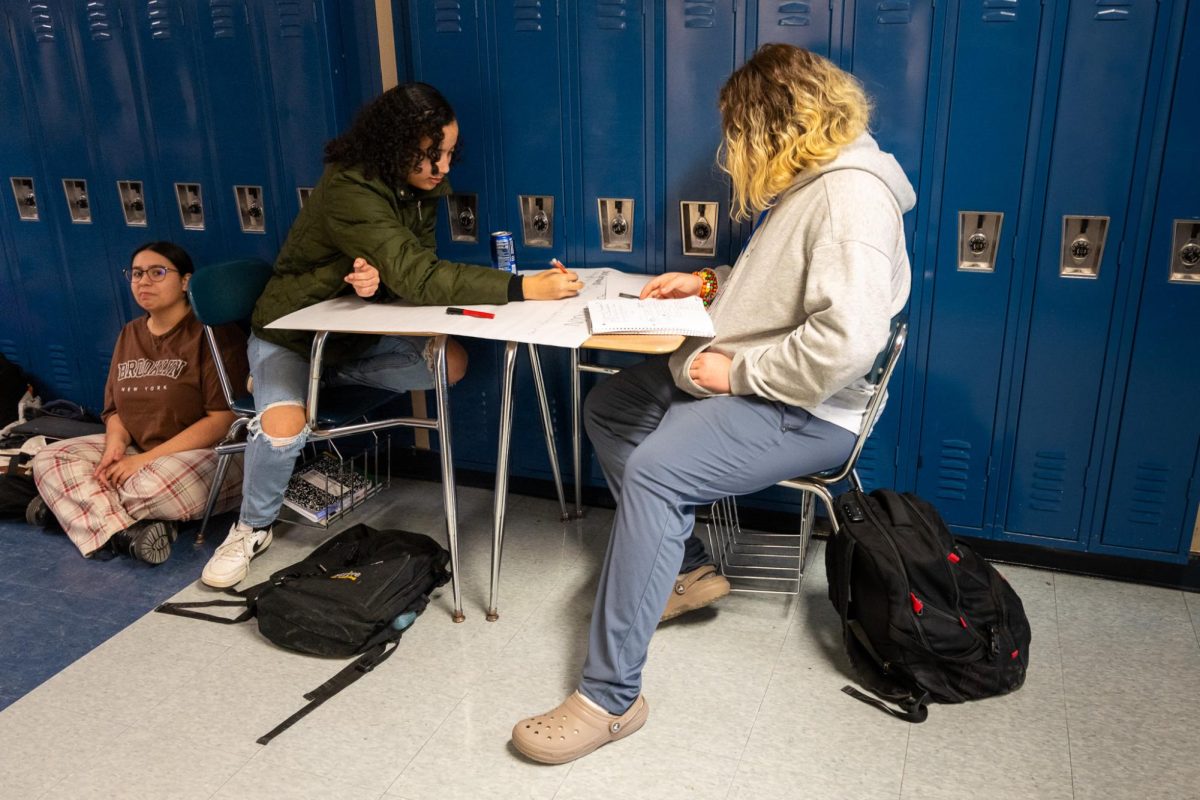
Rebecca Layton converses with students about polygamy, and cult related activities. Layton enjoys discussing taboo topics with her classes.
“I could never make the decision on whether to remove a child from their home or not be able to remove a child from a harmful situation,” said Rebecca Layton as she explained why she couldn’t go into social or police work and instead went into teaching.
Rebecca Layton is the newest addition to the Social Studies department here at Norrix teaching both psychology and sociology. She arrived with a four degrees. One in education, sociology, psychology, and history from the University of Michigan and eight years of teaching experience in what could be considered one of the roughest schools in the DC area. Then on top of that she experienced teaching twenty something year olds, immigrants who barely speak english, and former and current gang members at night school.
She laughs when students complain about Norrix and the dress code, and ID’s, because where she comes from they wear strict uniforms, not to strip kids of their individuality, but to prevent gang violence associated with specific colors.
“We had uniforms to separate gangs, legit conflict between certain neighborhoods. I had situations where students would come to my classroom door looking for specific students,” said Layton.
Layton claims there were approximately 17 hundred students in the school when she first started teaching but by the time she left, there were somewhere around 11 hundred students left after people fled the county due to violence within the schools.
“In one school year we lost 7-8 students. I knew two,” Layton said sadly. “I didn’t feel safe, but worse, I worried every night when my kids left.”
Layton became accustomed to worrying about her students, especially being aware that some of her students were homeless. She would pack food for students and bring them to school, also bringing home students’ laundry and washing their clothes for them.
When Layton compares Norrix to her school in DC she describes the mood generally more positive here. She claims this has to do with the Promise and accessibility to resources within the school. She explains that in DC if a family couldn’t afford college, they simply couldn’t afford it and it wouldn’t be an option for them. She talked about how she would spend hours trying to look for scholarships for her AP psych students, determined to make college happen for them.
“We haven’t lost hope for the hallway children [frequent skipping children] here, whereas there, a single parent home there was no solution,” said Layton.



